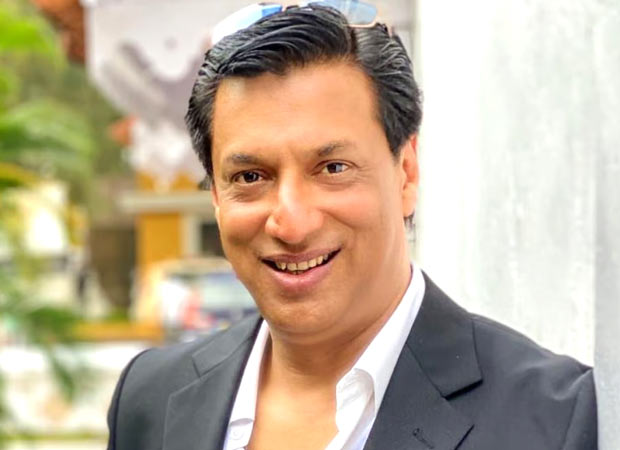Save UNRWA!
Al-Ahram, Egypt, November 7
The recent events in our region, marked by the protracted conflict between Israel and Hamas, have had devastating repercussions for the Palestinian cause – consequences that must be addressed without delay.
The immediate priority for Arab nations, through the UN and the new US administration, should be to alleviate the impact of Israeli aggression on the Gaza Strip. Currently, around 2.5 million Palestinians in Gaza are in desperate need of comprehensive shelter and emergency assistance in all aspects of life.
Even the Palestinian camps within the Strip have been left without aid, especially since the United Nations Relief and Works Agency for Palestine Refugees in the Near East (UNRWA) has been barred from operating in the West Bank and Gaza.
Israel has opposed the presence of this international agency, arguing it should be folded into a single global refugee organization. UNRWA, however, is more than a relief organization; it supports around 6 million Palestinians, funding many camps both in the diaspora and in regions neighboring Israel, like Jordan, Lebanon, and Syria.
Since its inception after 1949, parallel to the birth of the Israeli state, UNRWA has been vital. Israel’s objective to dismantle UNRWA aims to suppress the right of return for Palestinians. Israel has justified its actions by claiming that some UNRWA members are affiliated with Hamas, presenting a list of 11 agency employees purported to be members.
Even if such affiliations were verified, it does not justify dismantling this crucial organization. Without UNRWA, poverty and deprivation would greatly increase among Palestinian families, leaving countless children without support, income, or a home.
It is imperative for Arab nations and the international community to collaborate to reinstate UNRWA’s operations and provide relief to Gaza, thereby offering hope to the millions who have suffered due to this conflict, which many view as genocidal.
In Lebanon, there is a pressing need for the Lebanese people to rebuild their national institutions. Electing a president and deploying the army at the border will help counteract any pretexts Israel might exploit to engage in military action against Hezbollah. This strategy would place Israel in a difficult position before the new American administration and the international community, exposing plans that may include reoccupying Arab territories and fueling instability in our region. – Osama Saraya
Trump is back: Israel excited, Iran apprehensive
Al-Watan, Saudi Arabia, November 4
Whenever a new president takes office, both internal and external interests shift, altering the policies that define their administration. Despite the US being a state founded on institutions, it often prioritizes interests over continuity in global issues. Values and principles occasionally surface but are often overshadowed by strategic interests.
George W. Bush dedicated his terms to avenging the 9/11 attacks through his “war on terror” in Afghanistan and Iraq. Barack Obama, succeeding him, began by withdrawing from Iraq and sought a nuclear deal with Iran, only to end his presidency compensating Israel for perceived harm from that agreement. Donald Trump quickly abandoned the accord, applying sanctions on Iran and fulfilling Israeli wishes like recognizing Jerusalem as its capital and supporting its claims over the Golan Heights.
President Joe Biden orchestrated the withdrawal from Afghanistan and soon faced the Russian invasion of Ukraine. This led him to a wartime stance, while he revived the Obama-era vision of the nuclear agreement, only to confront issues like the Oct. 7 attacks, acting staunchly pro-Zionist and at the mercy of Israeli Prime Minister Benjamin Netanyahu, who openly supported Trump’s return.
Eastern and Western spheres are now presenting divergent visions for America and the global order. Trump is strengthening ties with European far-right populists, like Hungary’s Viktor Orbán, who suggests Trump’s potential truce with Russian President Vladimir Putin over Ukraine, concerning European capitals fearing an Atlantic alliance pivot.
Trump appears open to Russia retaining occupied Ukrainian territories and opposes Ukraine’s NATO membership, aligning with Putin’s conditions. Recently, Trump vaguely addressed Arab Americans in Michigan, seemingly urging Israel to “finish the job” with Hezbollah and Hamas, aligning with Biden and Western governments. Reports suggest Trump tells Netanyahu he wants the Gaza conflict resolved by his potential office assumption.
Trump’s advisers claim regular Netanyahu contact, urging pre-election Iran attacks, contrary to Biden’s preferences. Unexpectedly, Iran’s Supreme Leader Khamenei surfaced, declaring planned retaliation before the US elections. Tehran’s calculations are questioned, especially as it’s apprehensive about a Trump resurgence during a vulnerable time, following missile program damages and militia losses.
Tehran didn’t predict the emerging consensus to limit its regional influence, even receiving nods from allies like Russia and China. Iran now anticipates a possible American green light for an Israeli strike on its nuclear sites, doubting the effectiveness of its proxies defending the mullah regime from afar. – Abdulwahab Badrakhan
Will North Africa benefit from US election results?
Al-Arab, London, November 4
The outcome of US elections has significant global implications, particularly for the Middle East amid conflicts in Gaza and Lebanon. However, North African nations seem disinterested, due to their strong economic and security ties with Europe. This relationship limits their ability to partner with the US in diverse areas, focusing largely on security.
Yet, a broader partnership with the US could be beneficial, especially as Europe struggles to support North Africa amid its own crises. With European economies faltering, North African countries face economic constraints, leading them to explore new partnerships with the US, China, and Russia, while maintaining their European ties.
Tunisia’s interest in Eastern partners like Russia and China reflects a response to limited European support, but such shifts are not straightforward solutions. Algeria’s alignment with BRICS and Maghreb nations illustrates their navigation of global interests.
The US could be a valuable partner, but partnerships involve challenges and negotiations. The US has historically viewed North Africa as secondary to Europe, but global shifts have made it critical to international security, prompting US engagement to counter competitors like Russia and China.
The US seeks strategic ties with countries like Tunisia, where its role has been more security-focused. Tunisia’s “major non-NATO ally” status in 2015 highlights the potential for deeper cooperation, although tensions over International Monetary Fund support and human rights issues complicate ties. Tunisian President Kais Saied’s resistance to foreign interference adds complexity to US relations, while criticism arises over Washington’s involvement in Libya’s political turmoil.
For a broader partnership beyond security, the US and North African nations need mutual engagement strategies, balancing human rights concerns and strategic interests. – Mukhtar Al-Dababi
The Gulf will help Lebanon, but not without accountability
Al Rai, Kuwait, November 6
The upcoming Gulf Cooperation Council summit in Kuwait will showcase a strong display of unity among Gulf nations, highlighting a commitment to prioritize national interests, human well-being, and future-focused development. As these leaders work on balancing foreign policies to safeguard their roles, they emphasize that leadership should remain within the region.
A significant focus of the summit will be Lebanon’s current plight, exacerbated by Israeli aggressions against its cultural and historical landmarks, revealing disdain for Lebanon’s values of coexistence and pluralism. Lebanon, traditionally seen as a second home by Gulf citizens, is now seeking support from Gulf states for reconstruction, with costs estimated at $15 billion. However, the Gulf region today emphasizes rational decision-making over emotional responses, stressing accountability in rebuilding efforts.
Previous unrestricted aid often led to entrenched corruption, eroding state structures, and misusing funds intended for reconstruction. The Lebanese political elite has been accused of financial mismanagement, wealth accumulation, and failing to uphold transparency and reform, leaving many citizens without savings.
Gulf leaders are urged to provide aid to Lebanon but with conditions to ensure effective use. Lebanon must implement international resolutions to maintain stability, establish diplomatic mechanisms, and ensure that weaponry is solely in the hands of its army and security forces. Reconstruction efforts should focus on building a transparent and accountable state, including electing a president who realigns institutions with contemporary needs.
Furthermore, foreign policy must remain committed to the Arab context and not subservient to any single axis. Despite past hostilities, Gulf states are encouraged to aid Lebanon, emphasizing direct oversight of reconstruction through mechanisms akin to the Kuwait Fund for Development. This system would prevent Lebanese political factions from exploiting aid.
Though nations are not charities, this opportunity to rebuild Lebanon after devastation should not be missed. Lebanon deserves a state that meets its people’s aspirations. Now is the time for the Lebanese to seize this chance for a better future. – Jassim Boodai
Translated by Asaf Zilberfarb. All assertions, opinions, facts, and information presented in these articles are the sole responsibility of their respective authors and are not necessarily those of The Media Line, which assumes no responsibility for their content.







